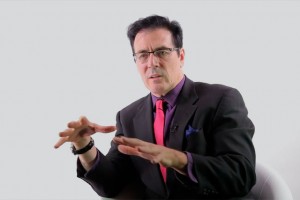Cancer Metastasis Promotion by CCR5 Receptor
Biologist Richard Pestell on the cancer GPS, chances to live a long life with the disease, and promising exper...
What are the main problems when collecting metagenomic data? What techniques are used to analyze metagenomic samples? Research Scientist at MIT Christopher Carr describes organisms on Earth which may help the study of Mars.
In developing our life detection instrument for Mars, the search for extraterrestrial genomes, we began looking at what kind of samples would we want to process. What kind of samples might we encounter on Mars, and how would our protocols be able to tolerate these samples. For example, if you’re working with a sample that has a lot of iron, this can precipitate and it can cause problems, it could damage DNA. So we started looking at what environments are used as terrestrial analogues of Mars, where other instruments that were gonna go to Mars were being tested.
It gives us a way to go and validate our protocols for looking for life on Mars, and also to understand these organisms and their environment. They’re scientifically interesting in their own right. Acid rock drainage is a major global problem. These organisms, basically the way they produce this acid is by eating rock, and as part of that process they solubilise metal and produce sulphuric acid.
Environmental metagenomics is first and foremost biology, but there is a very significant component of computation today. The sampling is very important, and you’re only gonna get out what effort you put in to getting a good sample. More and more effort has gone into how do you preserve a sample to thereby get the kind of data that’s truly representative of the environment. That means for example if you’re looking at genomic DNA, making sure your sample is not going to be degraded. In particular, degradation is a really big issue for RNA, but also people are starting to do things like look at structure using saying cryo-EM.

Biologist Richard Pestell on the cancer GPS, chances to live a long life with the disease, and promising exper...

Biologist Arkhat Abzhanov on morphological changes among birds, transgenes, and laboratory experiments on chic...

Mathematician Hadi Godazgar on supersymmetry, types of particles, and the complexity of the world